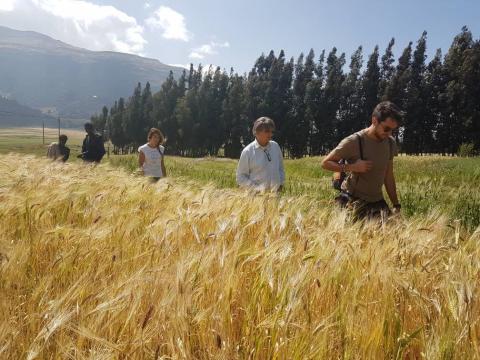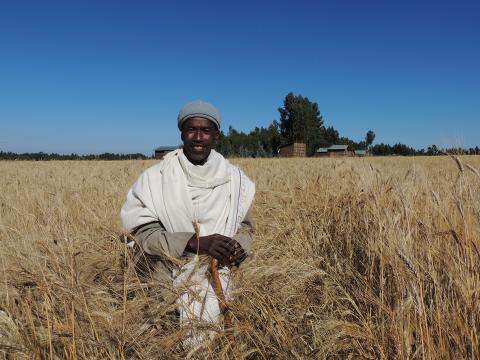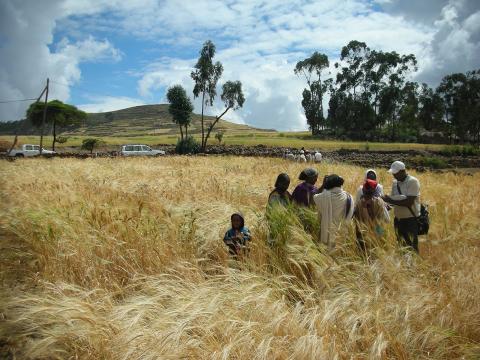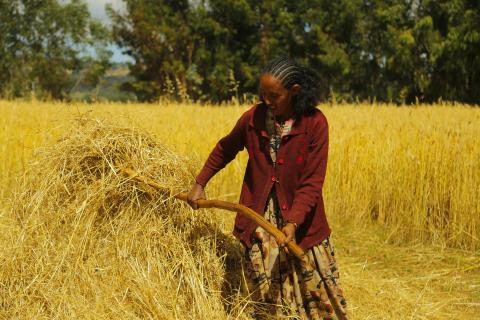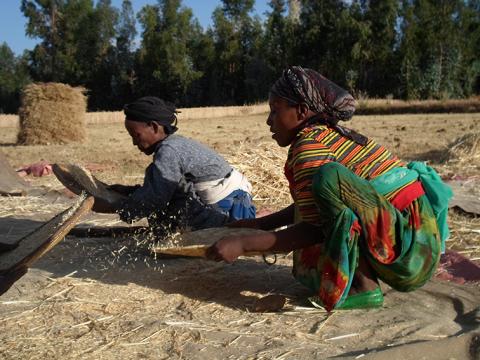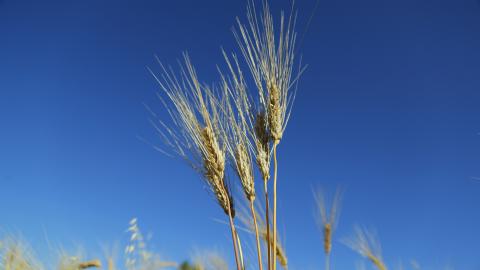Farmers in Ethiopia teach genetics how to produce a more resilient and productive wheat. New participatory methods are the key to more sustainable agriculture
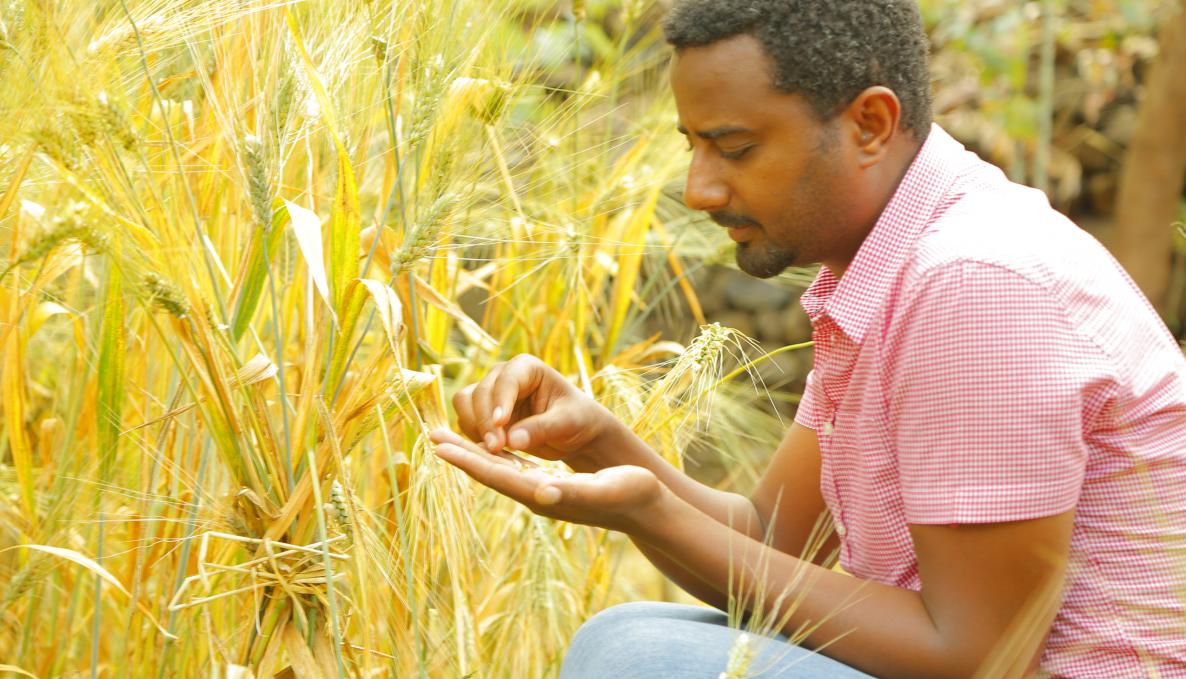
The Plant Science Research Centre of the Scuola Superiore Sant'Anna has developed a new method to accelerate the production of more resistant and productive plants, which makes use of the collaboration of farmers in the highlands of Ethiopia. Two new studies published in the prestigious international journal Proceedings of the National Academy of Sciences (PNAS), have shown how the traditional knowledge of Ethiopian farmers can be integrated into analyses based on DNA sequencing of wheat, significantly improving the accuracy of the process of selecting wheat varieties suitable for local cultivation.
The study 'Genomics-driven breeding for local adaptation of durum wheatis enhanced by farmers’ traditional knowledge’ is coordinated by the Scuola Superiore Sant'Anna with the collaboration of the Amhara Regional Agricultural Research Institute (Ethiopia), Bioversity International and the Department of Biosciences of the University of Milan (Italy): while the study 'Data-driven approaches can harness crop diversity to address heterogeneous needs for breeding products is coordinated by Bioversity International with the collaboration of the Scuola Sant'Anna.
Science learns from farmers to improve agricultural sustainability
In the two published articles, researchers demonstrated how research approaches that integrate genetic information, climate, and farmer knowledge are the key to increasing agricultural sustainability and food security in the global south. Science therefore learns from farmers and not vice versa. In the research work signed by Scuola Sant'Anna researchers, more than 1,200 wheat varieties were produced and analysed with the collaboration of local farmers, identifying new types of wheat with greater adaptability and productivity. These publications show that local farmers can be an active component of research, and that with their experience they can contribute to selecting wheat types more suitable for local cultivation.
"Ethiopia's wheat represents an enormous wealth, developed over the centuries by local farmers" says Matteo Dell’Acqua, professor at the Scuola Superiore Sant'Anna and coordinator of Plant Science Research Center. "Today, scientific research in the field of genetics can return to the farmers and, with their contribution, promote and conserve local diversity for productive and more resilient agricultural systems".
The research was carried out as part of the AfricaConnect project, a special programme of the Scuola Superiore Sant'Anna that aims to unite the social and experimental sciences with the common goal of supporting sustainable development in Africa. Enrico Pè, professor involved in AfricaConnect adds: "Subsistence agriculture involves hundreds of millions of people worldwide, and requires scientific and innovative solutions to increase its resilience to climate change. It is through transdisciplinary methods that combine climate science, genetics, agronomy, and social sciences that it is possible to make a lasting impact on the lives of farmers in emerging countries".
"The climate crisis is projecting agricultural systems towards an uncertain future," concludes Matteo Dell'Acqua. "It is now crucial to look for shared solutions that make a more productive, resilient, sustainable agriculture possible. In this research, scientists have learnt to dialogue with farmers and together they have developed innovative solutions to respond to these major challenges."

